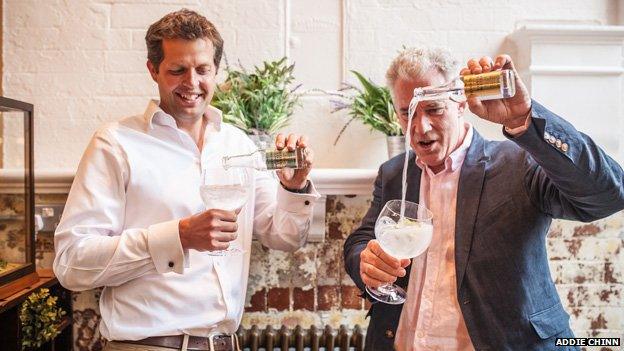Fever-Tree say global demand has boosted profits
- Published

Fever-Tree has said global demand for its premium mixer drinks has boosted profits in an "exceptional year" for the business.
Pre-tax profits hit £16.8m in the year ending 31 December 2015, up from £2.5m.
Revenue was up 71% to £59.3m, from £34.7m in 2014.
Charles Rolls, the firm's executive deputy chairman, said its success was due to their customers' "desire to drink premium mixers to complement their premium spirits".
Tim Warrillow, chief executive of Fever-Tree, added: "2015 was an exceptional first full year for Fever-Tree as a public company."
The pair decided to become business partners after meeting for the first time in 2003 and launched the company in 2005.
The company is named after the colloquial term for the cinchona tree, from whose bark the natural anti-malarial drug and core tonic water ingredient, quinine, is produced.
About 65% of its sales come from overseas, with key markets in the US and Europe.
Fever-Tree's products are now on sale in over 50 countries
Fever-Tree has signed deals with Easyjet and British Airways, with Marks and Spencer also stocking its drinks.
It said its tonics continued to be its best-selling products and that it was benefiting from the popularity of premium gin products in western Europe and US.
In the US, the popularity of the Moscow Mule cocktail continued to drive strong growth in ginger beer sales in 2015.
- Published24 September 2014